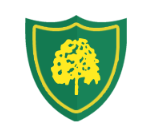Year 4KF
Welcome to Year 4KF Class Page, the place for you to find out all the amazing things that have and will be happening in your class this year.
So click on each of the headings to find out more information about the given topics.
Your Class Teachers
This year, your teacher is Miss Fowler and your Teaching Assistants are:
- Miss Green (Monday afternoon)
- Miss Shelton (Tuesday morning)
- Miss Shelton (Wednesday morning)
- Miss Shelton (Wednesday morning)
- Mrs Payne (Wednesday afternoon)
- Miss Shelton ( Thursday morning)
PE
Swimming will take place every Wednesday this half term Please ensure your child brings
- a swimming costume or trunks
- a towel
- a swimming cap
PE will take place every Friday. This half-term we are learning how to play tag football.
For PE sessions please bring the following:
- Black shorts, leggings or jogging bottoms
- White t-shirt or polo shirt
- Black pumps or trainers
It is usually best to leave your child's PE kit in school for the half-term so that it is always available to use.
Reading
It is important that your child brings their reading book into school each day as the days on which they will be able to read with an adult may change from time to time. It is also crucial that you listen to your child read each evening and ensure that you sign their reading record highlighting what they have read and how they performed.
Homework
Homework will be set on a Tuesday through our online learning platform, SeeSaw. A link for which is placed below:
All homework should be completed by the following Monday and will be checked by your teacher on this day. Please make sure that if you are having difficulties with the homework, that you contact your class teacher with plenty of time so that they can assist your child in its completion. In addition, the school also run a homework club which can really help support those children that struggle completing their tasks independently.
Spellings are handed out on Tuesday and are tested in class on the following Monday.
Curriculum
Our topic this half-term is Sounds and Vibrations.
As writers we will:
• Recognise the grammatical difference between plural and possessive ‘s’
• Indicate possession by using the possessive apostrophe with plural nouns
• Organise paragraphs around a theme
• Build a varied and rich vocabulary
• Propose changes to grammar and vocabulary to improve consistency, including the accurate use of pronouns in sentences
As mathematicians we will:
- Convert tenths from fractions to decimals.
- Convert hundredths from fractions to decimals.
- Divide a one-digit number by 10.
- Divide a two-digit number by 10.
- Divide a 1 or 2 digit number by 100.
- Make a whole with tenths and hundredths.
- Partition decimals.
- Compare and order decimals.
- Round decimals to the nearest whole number.
As Scientists we will:
- Describe how sounds are made.
- Describe how sounds are heard through different mediums.
- Explain the relationship between vibration strength and volume.
- Describe the relationship between volume and distance.
- Describe the pitch and how to change it.
- Explain how insulating materials can be used to muffle sound.
When working scientifically, pupils who are secure will be able to:
- To observe closely how different instruments create a sound.
- Research how whales and dolphins communicate underwater.
- Present results using a bar chart.
- Suggest which variables to measure and for how long.
- Design simple results tables.
- Identify when results or observations do not match predictions.
As musicians we will be learning Samba Drumming through Trafford's Music teaching.
As artists we will:
- explore the work of Heinz Edelmann
- learn about the effect of light
- learn about scale and proportion
- design a front cover for James and the Giant Peach in the style of Edelmann
- recreate a front cover using computer technology
As learners of RE we will be exploring the Big Question:
What does it mean to be a Hindu in Britain today?
We will:
- What is Hindu Dharma?
- How and why do many Hindus perform Puja?
- What is dharma? What can we learn from the story of King Yudhishtira?
- What does the Ramayana tell Hindus about dharma?
- How and why do many Hindus celebrate Diwali?
- Can I plan a Diwali celebration for my local community?
As Computer Technicians we will:
- Understand how to create a simple script in Scratch
- Add or change a sprite and prevent it from rotating
- Use decomposition to identify key features and understand how to decipher actions that make the quiz game work
- Understand what a variable is and how to use the ‘say’ and ‘ask’ blocks
- Create a variable and be able to use a variable to record a score
- Understand what a variable is and how it works within a program
As learners of PSHE we will be focusing on relationships. We will be exploring these key questions:
- How do I manage dares?
- What is pressure and how can I resist it?
- When might people feel jealous?
- When is it okay to break somebody’s confidence and tell their secret?
- What is acceptable physical contact?
- Why do friendships change? How can I manage my changing and conflicting friendships?
- Why do people make assumptions?
- What happens to information that is shared online?
- How is data used for advertising?
